How the family system changed in Pakistan
- September 11th, 2023
- by Nigah Mir
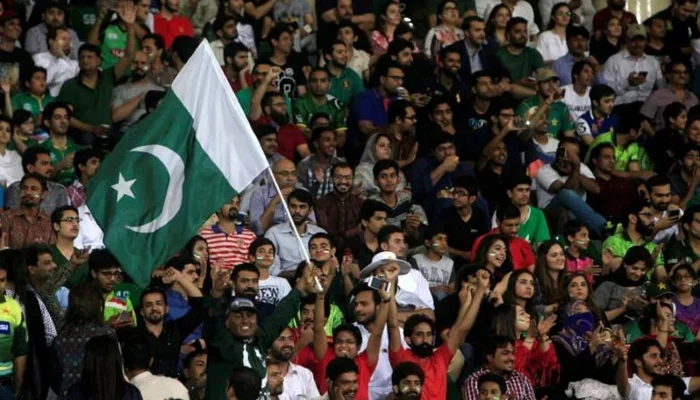
In recent years, Pakistan has been undergoing a fascinating transformation in its family system, shaking up long-held traditions and welcoming a new chapter in its social fabric. This transformation is being driven by a mix of factors, like the spread of cities, the influence of the global stage, shifts in gender roles, and even differences in values and expectations between generations. Family is truly at the heart of Pakistani society, and grasping these evolving dynamics is not just a matter for academics and policymakers but something that resonates with people from all walks of life. In this article, we’ll take a closer look at the intricate web of changing family structures and how it contributes to a profound shift in the way families function in Pakistan.
Picture Pakistan of yesteryears, where the extended family system was the dominant narrative – a family structure that was all about togetherness. Picture this: several generations all living under one roof, in one big, bustling household. Grandparents, parents, kids, and sometimes even distant relatives, all coexisting in a sort of harmonious symphony of family life.
This setup was like a safety net, a place where everyone pitched in for childcare, shared the financial load, and tackled the daily chores together. It was deeply rooted in culture, with a strong emphasis on respecting elders and preserving the family’s honor. Decision-making was usually rested in the hands of the eldest male member. But above all, family bonds were sacred. Yet, like many things in life, this traditional structure has been changing as society evolves, cities grow, and people’s dreams shift.
Now, let’s fast forward to the last decade, where we see a new chapter unfolding. In recent times, Pakistan has been witnessing a shift toward a newer family structure – the nuclear family. This evolving setup contrasts with the traditional joint-extended family we once knew so well. In nuclear families, it’s all about a smaller, more intimate circle. Parents and their children form a tight-knit unit, often living separately from extended family members.
This arrangement tends to be more autonomous, with decision-making primarily resting within the immediate family. While it may lack the day-to-day hustle and bustle of a joint family, the nuclear family provides its own set of benefits, like increased privacy, autonomy, and the chance for parents to focus more closely on their children’s upbringing. It’s a sign of changing times, reflecting urbanization, evolving gender roles, and individual aspirations that are shaping the way families live and grow in Pakistan today.
But why has this change come about, and why is it spreading so rapidly? There are many factors, the biggest of which is likely that the winds of urbanization and industrialization have inspired young couples to seek independence, leading to the emergence of smaller nuclear households. Not only that, but the allure of economic opportunities in the cities has been irresistible, drawing many away from their hometowns and gradually transforming the extended family structure into something more compact and self-contained.
Another one of the most prominent reasons behind the changes in Pakistan’s family dynamics has been the metamorphosis of women’s roles in the family. Back in the 1990s, women’s roles were largely focused around – or rather, confined to – homemaking and caregiving. They had limited participation in the formal workforce, and careers, if any, were often restricted to certain fields like as teaching and healthcare.
Today, the landscape is vastly different, with women playing pivotal roles in the unfolding family saga. Pakistani women are pursuing higher education with zeal and venturing into diverse career fields. This empowerment hasn’t just challenged traditional gender roles, it has also reshaped the allocation of family responsibilities. Many women are now active contributors to the family’s income, resulting in significant shifts in the decision-making dynamics within the household.
Upon further exploration, it becomes evident that the transformation of family structures in Pakistan is not uniform across the nation. In rural areas, traditional family values and the joint family system continue to thrive. In these tranquil landscapes, change unfolds with much resistance, at a very gentle, almost languid pace.
Now, let’s turn our attention to the bustling urban centers, where a different narrative unfolds. Urbanization has ushered in globalization, exposure to diverse cultures, and a plethora of economic opportunities. In these vibrant urban spaces, households have become smaller, and young couples have gained newfound independence.
As we reflect on these changes in Pakistan’s family structure, we find that they bring both challenges and opportunities to the forefront. Economic disparities, generational conflicts, and the shifting sands of traditional values can sometimes strain family bonds, testing their resilience.
However, the evolving landscape also offers promising prospects. The increasing independence of young adults, the growing emphasis on education, and improved gender equity all provide opportunities to forge stronger, more resilient families that are better equipped to navigate the complexities of the modern world.
In the intricate tapestry of Pakistan’s family structure, we find a narrative that is both evolving and enduring. The transition from extended to nuclear families, the empowering journey of women, changing perspectives on marriage, and the contrast between urban and rural landscapes all contribute to the dynamic story of family life in Pakistan. These changes may pose challenges, but they also reveal the adaptability and resilience of Pakistani society in the face of a rapidly evolving world.
As Pakistan continues its journey of development and modernization, the family structure will continue to evolve, influenced by both tradition and progress. The story of Pakistan’s families, like the nation itself, is a rich and diverse narrative that unfolds with every passing day, and it is a testament to the strength and adaptability of its people.

You may also like

Navigating online education in Pakistan
- December 9th, 2023

Marriages in the times of inflation
- September 29th, 2023

Why are people shifting towards bottled water in Pakistan?

Best degrees to pursue in Pakistan in 2023
- August 31st, 2023
Leave a Comment Your email address will not be published.
Leave a reply cancel reply.
Your email address will not be published. Required fields are marked *
Save my name, email, and website in this browser for the next time I comment.
Featured Posts
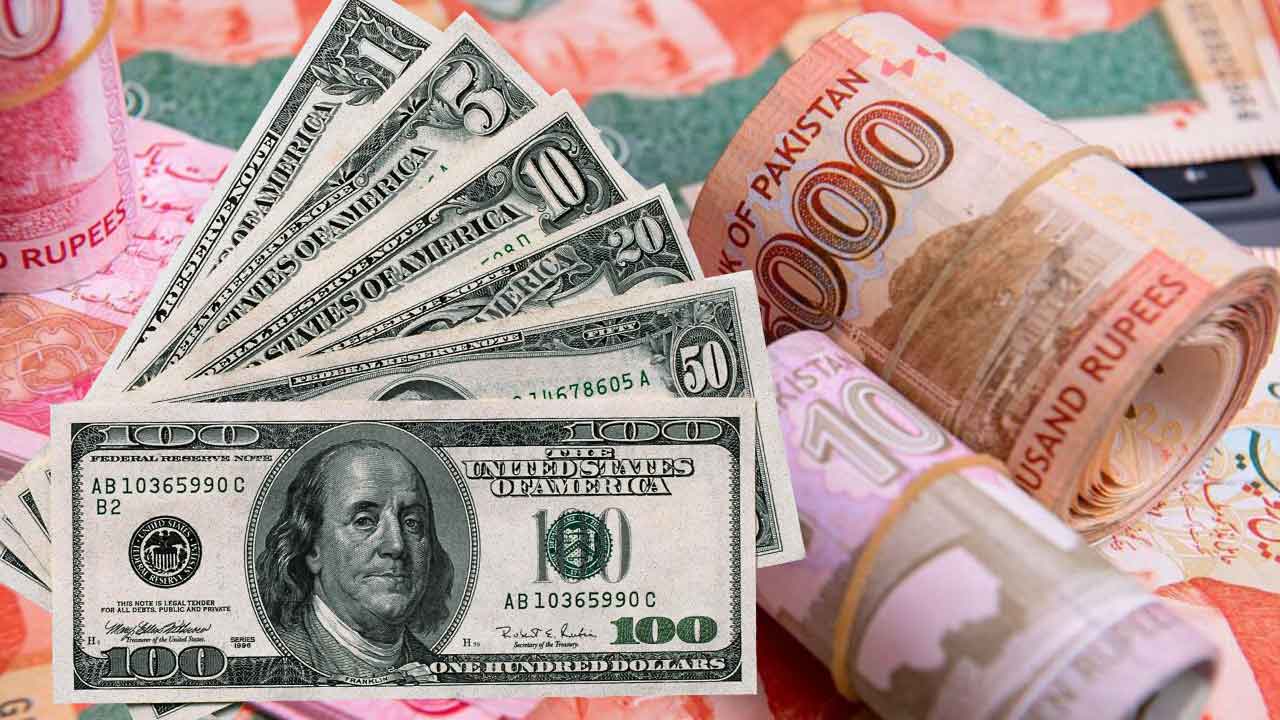
Currency exchange rates in Pakistan –…
- July 27th, 2024
- by News Desk

Gold prices in Pakistan –27 July…

- July 26th, 2024

Gold prices in Pakistan –26 July…

- July 25th, 2024
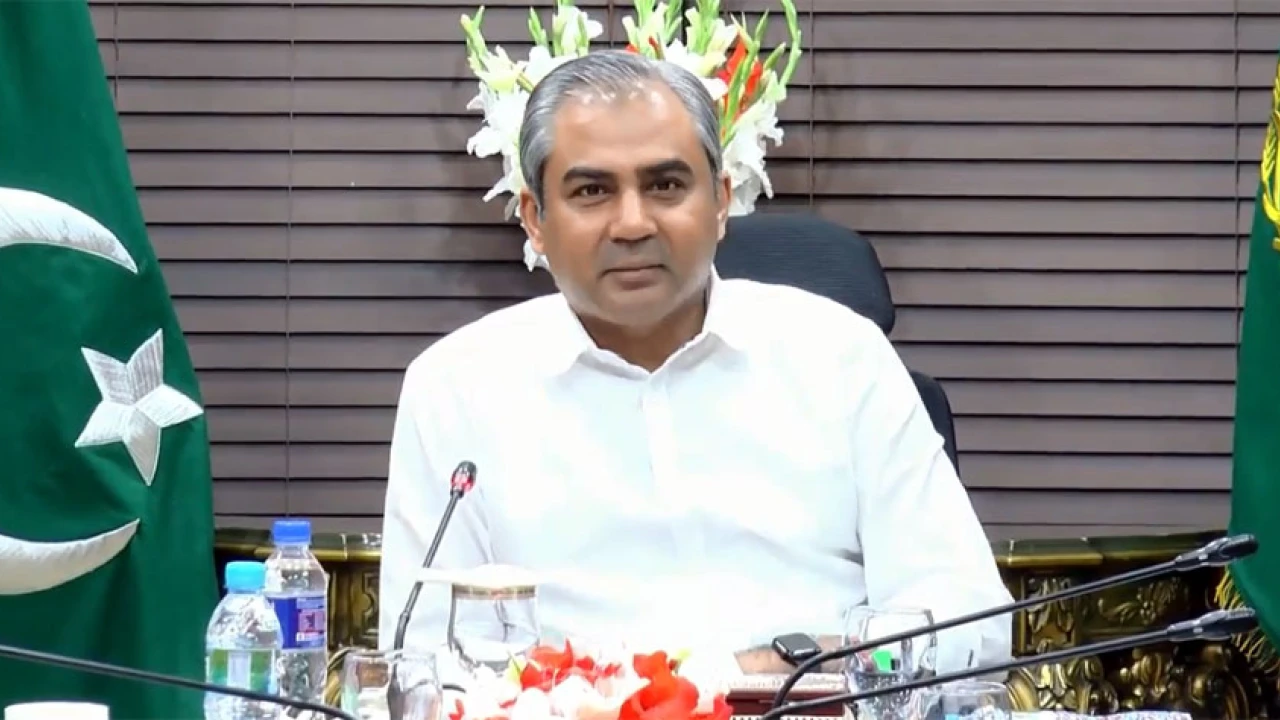
Chairman PCB seeks advice from former cricketers on team development
- July 9th, 2024

Hardik Pandya crowned top T20I all-rounder
- July 3rd, 2024

ICC Men’s T20 World Cup 2024 team named
- July 1st, 2024

Afghanistan, India reaching ICC Twenty 20 World Cup semi-finals from Group-A
- June 25th, 2024

Climate change boosts wildfire, pest threats to world’s forests: UN report
- July 23rd, 2024

US VP Kamala Harris lunches campaign for Democratic presidential nomination with snub to Netanyahu

UN chief urges parties to restart talks to end Palestinian lands’ occupation after ICJ’s verdict
- July 20th, 2024

Trump accepts Republican presidential nomination with call for ‘unity’
- July 19th, 2024

June 2024 was the hottest on record as global heat wave persists: report

Zubaida Trail: A historic passage for pilgrims
- June 10th, 2024

Pakistani students show rich culture heritage at Chinese university
- May 28th, 2024

Traditional Chilam Joshi festival continues in Rumbur Valley, Chitral
- May 16th, 2024
- nawaiwaqt group
- Roznama Nawaiwaqt
- Waqt News TV
- Sunday Magazine
- Family Magazine
- Nidai Millat
- Mahnama Phool
- Today's Paper
- Newspaper Picks
- Top Stories
- Lifestyle & Entertainment
- International
- Editor's Picks
- News In Pictures
- Write for Us
Why the joint family system is the best to bring up children
With the international day of families just round the corner, shaikh abdul rasheed gives us a round up of the types of families prevalent in modern societies, and which one of them he believes is the best..

On 15th May, International Day of Families is celebrated throughout the world to raise awareness through workshops, seminars, exhibitions and organized discussions about the importance and the role of family in society. The family is a universal social institution and a fundamental social unit or social group created by blood, marriage, or adoption. It is a fact that the existence of family in society is inevitable for survival, welfare and the development of individuals. Change in the family system is a constant phenomenon in all of the world’s societies. Pakistani society is no different.
Family is the backbone of society which plays a vital role in the personality formation of children, because children spend a large period of time with family members and have intimate relationships and regular interaction with them. The primary responsibility of family is to ensure the continuation of society both biologically, through procreation, and socially, through socialization.
Karachi police kill kidnappers in Defense Phase 7, rescue hostage safely
Socialization is the process through which children acquire language, absorb the accumulated knowledge, attitudes, beliefs, and values of their culture; and learn the social and interpersonal skills they need to function effectively in society. Through socialization, children learn to be responsible and peaceful individuals and adapt certain behaviour.
Family is also an important role-teaching agent because it delineates relationships among mothers, fathers, siblings, parents, children, other relatives and non-family members. Family provides children with affection, emotional support, companionship, status determination, social control mechanism, education, health facilities and social security.
The following most common types of families exist today in our society:
Nuclear family
The nuclear family consists of two parents and children. In the US, this family structure is considered the ideal family to raise children. Almost 70 percent of children live in a nuclear family unit in the America. In Pakistan, too, the trend of nuclear family structure is increasing rapidly.
RTO conducts raids to check issuance of PoS receipts
Extended or Joint family
This family type consists of two or more adult members; mostly extended family members such as cousins, aunts or uncles, grandparents and grandchildren live together in the same home. This type of family structure may form due to financial difficulties or because older relatives are unable to care for themselves, alone. Extended families are common in our society.
Step-Family
The step-family is created when individuals have married multiple times. This structure of family merges two separate families into one new unit. It is made up of a husband and wife and their children from previous marriages or relationships. Step-families tend to have more problems such as adjustment periods and discipline issues.
Grandparent Family
This type comprises grandparents who raise their grandchildren. This can happen for multiple reasons such as parents' death, addiction, abandonment or being unfit for the role.
Attock police arrest 9 outlaws
Adoptive family
This is a family where one or more of the children has been adopted. Any of the above-mentioned structures can also simultaneously be an adoptive family.
Family disorganization is a breakdown of the family system. Family disorganization may include divorce, separation, and physical violence etc. The disorganization is caused by tensions and conflicts between the two spouses. The reason behind these tensions and conflicts are disagreements, incompatibility, failure to meet high expectations, and differences in viewpoints of partners and other family members.
Marital relationships are the central bonds for the family to survive in any society, thus when this bond breaks, the family is automatically broken. Family disorganization affects more on the behaviour of children because it contributes to the loss of social control that families usually exert on their members, especially on children. As a result, children adopt deviant behaviour.
Devcom-Pakistan bells alarm on emerging threats to Margalla Hills National Park
Like western societies, Pakistani society, particularly its urban sector, is changing swiftly. New norms and values are emerging. The joint family system is disappearing from society. Nuclearization is the process of the society’s shift from the joint family system to the nuclear family system. Numerous factors lie behind this movement such as industrialization, urbanization, rapid means of communication and transport, decline of agricultural and village trades, individual freedom, better socialization of children, privacy and influence of western civilization. But both industrialization and urbanization have given a great setback to the joint family structure because new industries, which are mostly established in urban areas, attract many people for employment. Once employed, the person, especially youth, leaves the joint family system in villages and towns and sets up his nuclear family in the industrial city.
Solid steps underway to restore glory of Peshawar: KPCTA DG
In my opinion, even today, as in the past, the joint family system is the best especially for children because it plays a pivotal role in the personality formation of children. It exerts the effective mechanism of social control and provides children with a variety of cherishable relationships. It helps us to learn interpersonal skills, and the art of living in a society. By living together the kids feel closer to their grandparents, uncles, aunts and cousins; they understand them more and establish a trusting relationship, which is not possible when they live apart and meet only occasionally. The joint family system contributes to our security, health and prosperity, and can help us to live a happy life. This is because in the joint family we have a lot of people around to help us and to share our sorrows and joys, whom we can lean upon in times of trouble.
Shaikh Abdul Rasheed
Shaikh Abdul Rasheed is a social activist and researcher. Follow him on Twitter
Slow death of Muzaffarabad’s environment
Transgenders - life and agony, not the end, cpec’s sahiwal power plant’s role in smog, climate justice , extraterritorial killings and global pushback against india’s ..., extraterritorial killings and global pushback against india’s policies, bunkers in kurram to be demolished, both parties will surrender ..., bunkers in kurram to be demolished, both parties will surrender weapons by feb 1st, family attacks polio team in karachi; 3 injured, atc rejects imran, other pti leaders’ acquittal pleas in ghq attack ..., atc rejects imran, other pti leaders’ acquittal pleas in ghq attack case, gandapur, qureshi among several pti leaders indicted in ghq attack ..., gandapur, qureshi among several pti leaders indicted in ghq attack case, sanctions come even before trump, pm orders fia to act against human trafficking after greece boat ..., pm orders fia to act against human trafficking after greece boat tragedy, three new polio cases reported in pakistan, total rises to 59 in 2024, nationwide internet disruptions cause major challenges for users, gallup survey: 47pc of pakistanis never used trains, digital nomadism redefines work and travel across the globe, lahore tops global pollution rankings as smog worsens, aqi reaches hazardous levels, a few days in agadir, at the brink, sanctions on the missile program, changing paradigms in me, three stories on gaza.

Europe’s Selective Outrage
Mislabeling edibles, violence continue, reconciling kurram, neglecting baloch education, am i a feminist, parachinar’s tragic turmoil, extending support and awareness for thalassemia, begging culture, coastal concord, epaper - nawaiwaqt.

Newsletter Subscription
Advertisement.

NIPCO House, 4 - Shaharah e Fatima Jinnah,
Lahore, Pakistan
Tel: +92 42 36367580 | Fax : +92 42 36367005
- Advertise With Us
- Privacy Policy
Nawaiwaqt Group | Copyright © 2024

E-Paper | December 22, 2024" href='https://epaper.dawn.com' class=' '> E-Paper | December 22, 2024
Is joint family a boon or a bane.
THE joint family system has been deeply ingrained in our culture for centuries, and it is often celebrated as a source of strength, unity and support. However, it is essential to recognise that while this system has its merits, it also presents unique challenges, especially when it comes to the wellbeing of children.
Islam, which is the official religion of Pakistan, has greatly emphasised the significance of family, unity and mutual respect, yet it also stresses the importance of individuals’ wellbeing and mental health. This raises the question: is the traditional joint family system compatible with the principles of individual psychological health and wellbeing outlined in the teachings of Islam?
Living in a joint family can be both a blessing and a challenge for children. On the one hand, they are exposed to a rich tapestry of relationships, including grandparents, aunts, uncles and cousins, which can provide emotional and social support. On the other hand, the dynamics within a joint family can sometimes lead to conflicts, lack of personal space, and an increased sense of obligation and responsibility.
Children growing up in joint families often experience a lack of privacy and autonomy, which can impact their mental health. They may struggle with personal identity and self-expression, as they are constantly surrounded by extended family members, who may impose their values and expectations on the children.
Also, the children get trapped in the middle of a negative relationship between their mother and grandmother in a joint family system, and it can be emotionally challenging and confusing. They may feel a sense of loyalty to both their mother and paternal grandmother, leading to inner conflicts as the mother and the grandmother may consciously or unconsciously try to draw them to their side in inevitable disputes.
This pressure to choose can be overwhel- ming for the children, as they fear upsetting one or the other. Apart from the grandmother, the sisters-in-law living together under one roof at times do not have good relations, resulting in bitter relations with cousins, and unfair treatment from uncles and aunts.
Furthermore, in the joint family if one family has higher income than the other family, the lower-income family’s children may feel envious of the opportunities and privileges available to their wealthier relatives living under the same roof. This can cause feelings of inferiority, inadequacy and low esteem. Children also start comparing themselves with their cousins in every aspect of their lives, from their toys and schools to cars and other belongings. This can lead to depression.
Families in Pakistan, fail to realise that it is not necessary for married children to live with their parents to fulfil their rights. There are options that can be exercised to maintain a balance between one’s parents and one’s spouse and children.
Couples can choose to live separately from their parents while keeping proximity, like living in the same neigh- bourhood, but in different houses. This will also allow them to frequently visit their parents on a regular basis, and help them out like sending food over, taking them for their routine medical check-ups, getting them groceries, and allowing the children to form a close bond with their grandparents.
It is essential that we recognise the potential challenges of the joint family system in Pakistan while acknow-ledging its definite benefits. Striking a balance between preserving cultural traditions and ensuring the mental health of children is crucial.
If the parents feel that due to family dynamics or tensions, they must take a stand for separating their household, this may cause them to face a lot of criticism, but in the long run, it is beneficial as the wellbeing of the children is of paramount importance, as they are the foundation of our future generations.
Hafsa Ahmad Karachi
Published in Dawn, January 8th, 2024

The maestro that he surely was

The India factor in regional context
A sharp u-turn.

Revolutionising reproductive health: Viya launches Viya Telehealth
ڈان خصوصی رپورٹ: سانحہ اے پی ایس کو 10 برس مکمل مگر زخم آج بھی تازہ.

‘اور زمین کا رنگ بدل گیا’، سقوط ڈھاکا کے متاثرین کی المناک یادداشتیں
موسمیاتی تبدیلی میں مصنوعی ذہانت کا مثبت اور منفی کردار.

Regulating Speech: Pakistan Vs US

Unpacking Pakistan’s Renewable Energy Boom

Packaging A Better Future: Tetra Pak’s Sustainability Journey

Top Stories: Netanyahu Threatens Yemen

Dispatch From Washington: Why U.S. Increase Sanctions On Pakistan’s Missile System?

Trump says If US Govt Shutdown Happens, ‘Let It Begin Now’

Top Stories: US Sanctions on Pakistan
Dear visitor, the comments section is undergoing an overhaul and will return soon.
Latest Stories


FIA Gujranwala arrests 2 for allegedly trafficking Pakistanis involved in Greece boat accident

Medical supplies shortage in Parachinar has left 50 children dead since road closure: officials

Beaten Fury says Usyk got ‘Christmas gift’ from judges

Iran protests US arrest of nationals over technology export: local media

PM Shehbaz forms committee to negotiate with PTI

Angry questions in Germany after Christmas market attack

Bad romance: The complex allure of toxic love in Pakistani dramas

Host Syed Muzammil Shah denies misquoted remarks about Mahira Khan

Bride, groom, spy: India’s wedding detectives
Most popular.

May 9 riots: Military courts hand 25 civilians 2-10 years’ prison time

Strange claim

Parts of Khyber, Bannu to be evacuated for action against ‘miscreants’

How India’s exploitation of US sanctions hurts Pakistani businesses

Imposing pickup trucks symbolise Pakistan’s power gulf

US sanctions won’t impact Pakistan’s missile programme: ex-envoy

Pentagon treads cautiously after official’s missile claims

Cartoon: 21 December, 2024

Despite revenue shortfall, bureaucrats eye lucrative raises

Editorial: SC must definitively settle fundamental questions about military trials of civilians

Likely cause of US missile claim

Dangerous liasions

Minorities fear targeted attacks in post-revolution Bangladesh

Madhubala the elephant and her tyre

The Syrian impact

From Baku to Belem

Beyond schools

Bold action to rescue SDGs in Pakistan

Military convictions
Need for talks, vulnerable vaccinators.

Media strangulation
Israeli rampage, digital retail payments surge to rs36tr: sbp.

Waqas A. Khan
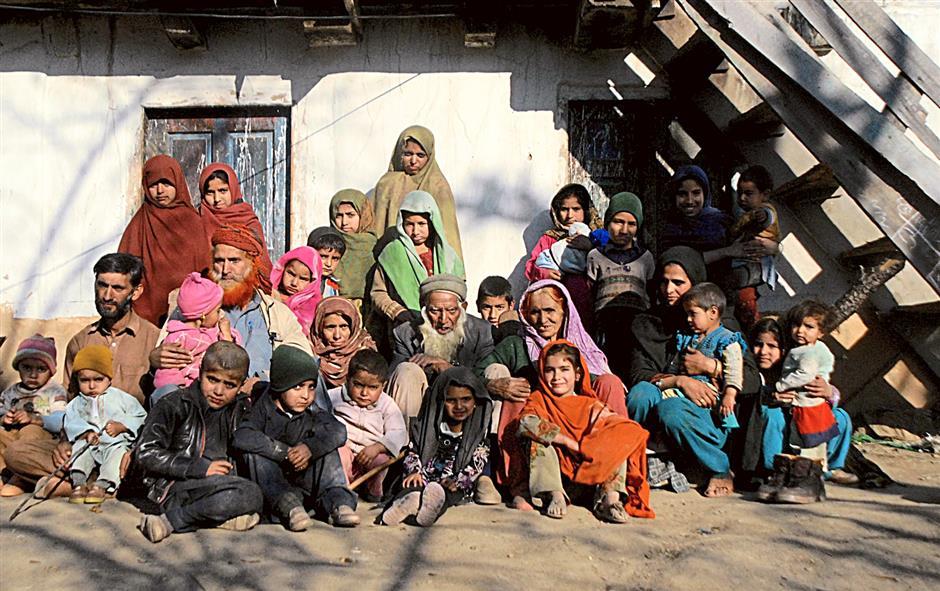
JOINT FAMILY SYSTEM IN PAKISTAN Part-1
Status, Issues and Solutions
In Pakistan, the very first question that is raised after knowing that a girl is getting married is always, “Is she going to a joint family or a nuclear family system?”
Yes, because people in Pakistan consider this to be a really big issue not only for the husband and wife but also for their upcoming family and children .
Back in 70’s and 80’s the Joint family system was considered better than an independent or a nuclear family system by the majority. But as the time changed, the new generation turned smart and grew up having the confidence that they are supposed to be independent and would not entertain anyone’s interference in their personal lives. Both the system either joint family or nuclear family have their benefits and flaws, but we are going to discuss what are the disadvantages in a joint family system when you are living in Pakistan.
Unlike West part of the world, it has been a trend since forever in Pakistan for a girl to live with her parents-in-law after marriage. It’s not that the couples back in 80’s always had a good experience of the joint family system, but it’s a fact that they were innocent and they valued their customs and respected their relationships more than their egos.
Disadvantages of Joint Family System In Pakistan
Now a day’s couples desire to live their independent lives or at least they don’t feel like having too much interference from anyone in their lives be it the parents or the siblings. Some of the main reasons why a joint family system is not an option in Pakistan are:
Head of the Family
In a joint family, there is always a head of the family who is considered to be the “Karta Dharta” of the family. You must need to share all the ups and downs of your life with him otherwise you’d be considered a rebel or a self-contained member of the family.
Sounds funny, Right?
The parents or the head follow the old norms and customs while the younger members of the family want to live their lives according to the new century
so, here starts the so-called war between the “Bahu” and the Parents in law. As I mentioned today’s generation always prefers being independent and they do not want to consider anyone when it comes to their personal lives, The girl or the daughter-in-law deems to be under estimated while the parents who always have been considered the “Monarch” of the family feels offended by the behavior of the new entry in the house.
Privacy? What?
Unfortunately, the most common lacking element in the joint family system is the “PRIVACY” of the couple which irritates more than anything. The every single bit of your relationship is out in the open to your family. Gross!
The Comparison Game
You have kids studying in a government school or a middle-class school? Oh, well my kids are studying in the top school in the city!
Yes, this is what happens in a joint family. Starting from you’re your dressing sense, and your living style to the way your kids talk, eat, sleep, study and whatsoever!!!
Every single thing is compared to your sisters (Jethanis and Dewranis) which create an inferiority complex in the parents and even in children.
Conspiracies
I need to get all the attention of the family members especially the head of the family so I would be the only eye-candy of the family and no one else. This thought urges to plot conspiracies against the family members.
Well, I am not joking at all! There is always a villain character in the family whose primary focus is always to try and grab all the opportunity to torture and take advantage of another innocent member of the family.
Useless Arguments
It is sometimes emotionally draining as there are higher risks of getting involved in pointless arguments based on misinterpretation or envy amongst family members.
Conflict In Opinions
Just because you are saying this, doesn’t mean I have to agree with it too. Right?
Every human being is free to have a personal opinion regarding any particular issue. But, if you are living in a joint family system you have to agree with the view of the senior members of the family otherwise it means you are the only apple of discord in the family.
Financial Clashes
The higher earning member of the family tends to have higher priority as compared to the one with the lower income which develops distance between the members and again the comparison and competition begins. Sigh!
It’s my birthday party, and I am inviting my friends, but oh wait! If you are not inviting the in-laws of your PHUPPO, who are almost dead.
Here begins the brawl and your party are spoiled already.
The younger members of the family have to bear all the workload always because they must respect the senior members and stop arguing.
Limited Space
Not all the time but most of the time you are forced to live in a limited space in a joint family it may be a portion or even a single room which is quite irritating and feels like being isolated in your own home.
Kitty Fights
You always witness kitty fights in a joint family system. Taunting each other all day long and sometimes getting into some serious arguments and regretting being married to this family. Funny again?
JOINT FAMILY SYSTEM PART 2
Related Posts
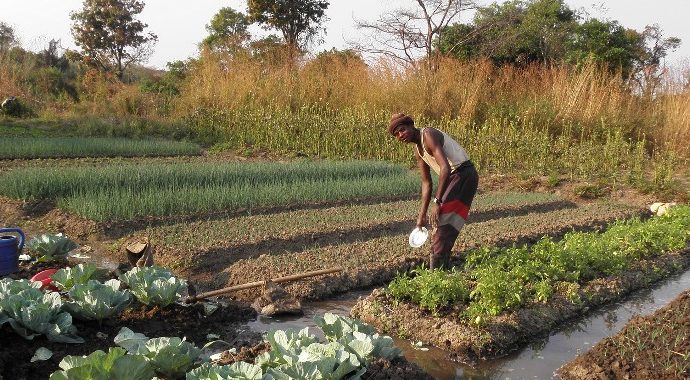
Common Misconceptions about the Agriculture Industry in Pakistan

Common Misconceptions about the Agriculture Industry in Pakistan Part-2
Leave a comment cancel reply.
Your email address will not be published. Required fields are marked *

Dr. Waqas A. Khan is a Journalist - Educationist - Lawyer from Kasur Pakistan.
No thanks, I’m not interested!

IMAGES
COMMENTS
Joint Family System Essay. The joint family system, a cornerstone of Pakistan's culture and society, has been an integral part of the country's social fabric for centuries. It is a unique arrangement where several generations of a family, including grandparents, parents, children, and sometimes even extended relatives, live together under a ...
In Pakistan, the joint family system is quite usually found. Joint family usually comprises father, mother, children, grand father and mother, and they live together with their people in the same family unit. Moreover, the governing male of the house will play a significant role with respect to the well-being of his family unit.
Upon further exploration, it becomes evident that the transformation of family structures in Pakistan is not uniform across the nation. In rural areas, traditional family values and the joint family system continue to thrive. In these tranquil landscapes, change unfolds with much resistance, at a very gentle, almost languid pace.
Like western societies, Pakistani society, particularly its urban sector, is changing swiftly. New norms and values are emerging. The joint family system is disappearing from society. Nuclearization is the process of the society's shift from the joint family system to the nuclear family system. Numerous factors lie behind this movement such as industrialization, urbanization, rapid means of ...
Urban family system has been developed as nuclear family system, due to the socioeconomic confinements inflicted by the customary joint family system.In Pakistan, the joint family system is quite usually found. Joint family usually comprises father, mother, children, grand father and mother, and they live together with their people in the same ...
THE joint family system has been deeply ingrained in our culture for centuries, and it is often celebrated as a source of strength, unity and support.
of the joint family system. The compromising factor at the household level is discussed in section five. Section six of the paper deals with the issue regarding efforts for empowerment and the last section provides some concluding remarks. Section 1 South Asian Women vis -à-vis Pakistan
The Joint family system has a very important place in human life. Life cannot move ahead without it. Islam is a true and complete religion and it gives preference to live together (joint family system) in a society. And, it teaches human beings about every aspect of life, whether, it is related to moral ethics, economics, politics, or society. ...
The Joint Family System in Pakistan - The effects of gender diversity on work group performance. Recently Searched No results found Tags ... The joint family system can be defined as a family system whereby father, mother, children, father in law, mother in law, uncle, aunties and cousins all live in the same house (Amir, 2005). ...
Both the system either joint family or nuclear family have their benefits and flaws, but we are going to discuss what are the disadvantages in a joint family system when you are living in Pakistan. Unlike West part of the world, it has been a trend since forever in Pakistan for a girl to live with her parents-in-law after marriage.